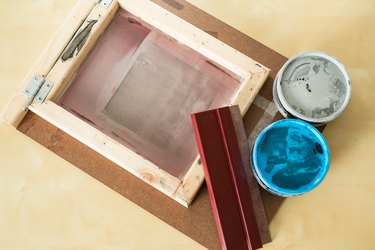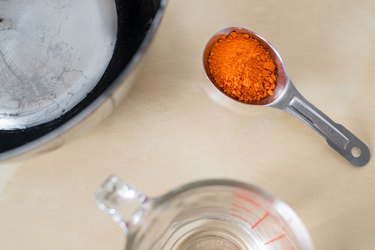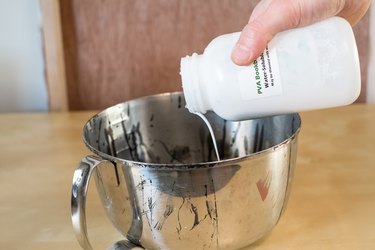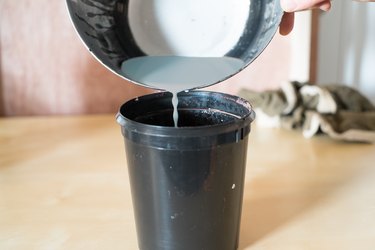Things You'll Need
PVA glue
Water
Ammonium dichromate crystalline powder (potassium dichromate can be used as substitute)
Bowl
Whisk and Spoon
Dark container with lid
Rubber Gloves, apron and respiratory mask

Screen printing, otherwise known as silk screening, is typically used in embroidery, T-shirt, and print shops. A design is drawn, typically using graphic design software, then transferred to a piece of vellum. The vellum is then placed onto a silk screen coated with emulsion and set under lighting to burn the design in. Emulsion is a solution used in many printing and photography labs, and can be made at home.
Step 1

Mix 1 tablespoon of Ammonium Dichromate with 2 ounces of water in a bowl. Stir until dissolved.
Video of the Day
Step 2

Pour 6 ounces of PVA glue into the solution. Stir vigorously for two minutes or until mixed in throughly.
Step 3

Whisk the solution and add continue adding equal portions of glue and ammonium dichromate until the solution becomes a slate blue color and slightly thickens.
Step 4

Pour the solution into a dark, non-see-through container. Cover the solution and store in a dark area, away from light sources.
Tip
Potassium Dichromate can also be used, but light sensitivity is much more intense and this results in lower exposure time and very brittle texture. Experiment with different mixture ratios to achieve a desired effect. This can vary depending on room temperature and light source. More ammonium dichromate mixed in generally creates faster exposure but the stencil will be brittle.
Warning
Ammonium Dichromate chemical solutions are extremely toxic. Ensure that you work in a well-ventilated area and wear adequate respiratory and skin protection. Keep Ammonium Dichromate away from heat or flame as it will explode. Prolonged exposure to the substance can cause cancer. This is a hazardous material and needs to be disposed of in an environmentally safe manner.
Video of the Day